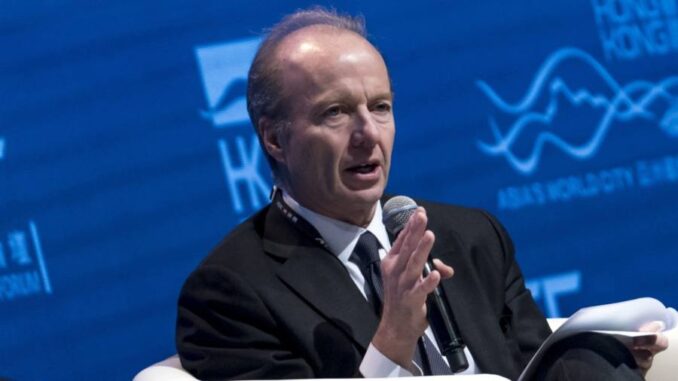
The man who will lead UK efforts to regulate cryptocurrency firms issued a stark condemnation of the sector on Wednesday, telling MPs that in his experience crypto platforms were “deliberately evasive”, facilitated money laundering at scale and created “massively untoward risk”.
The comments from Ashley Alder, the incoming chair of the Financial Conduct Authority, suggest that crypto firms hoping to build businesses in the UK will face an uphill battle when the FCA assumes new powers to regulate broad swaths of the sector.
They also put Alder, who will become FCA chair in February, on a potential collision course with the government’s aspiration to create a high quality crypto hub that fosters innovation, a vision ministers have remained loyal to even as the global crypto market lurches from crisis to crisis, epitomised by the collapse of FTX. The FCA declined to comment on whether their incoming chair’s views were at odds with those of the government.
Alder comments came during a sometimes terse appointment hearing with the cross-party Treasury select committee, where he faced sustained criticism for appearing virtually from Hong Kong and for his lack of familiarity with some parts of the UK market place and its accountability structures.
“I think it [crypto] should be regulated further,” said Alder, who is currently chief executive of Hong Kong’s Securities & Futures Commission.
“Our experience to date of [crypto] platforms, whether FTX or others, is that they are deliberately evasive, they are a method by which money laundering happens in size,” said Alder, adding that the way crypto firms “bundle a whole set of activities which are normally segregated . . . gives rise to massively untoward risk” like potential conflicts of interest and assets not being properly segregated.
The FCA has traditionally taken a tough approach to its limited crypto remit, rejecting 80 per cent of firms who applied to join the watchdog’s register of business that have passed its anti-money laundering checks. The government is finalising plans to give the watchdog broader powers, including overseeing crypto firms’ advertising, sales practices and management.
The FCA, which has struggled with its existing workload, is midway through a transformation plan that chief executive Nikhil Rathi promised would improve efficiency. Asked by MPs about the significant staff backlash the plan inspired, including a recent finding that less than a third had confidence in the FCA’s leadership, Alder said: “You could only hope that would improve”.
He admitted the FCA suffered from a perception that it had failed to “secure adequate protection for consumers” as well as “perennial questions around operational efficiency”. Alder said he was planning to move to the UK in January and would spend more than the two to three days formally required for the chair role on efforts to support the turnround.
He also pledged support for the government’s plan to revisit the “senior managers regime” introduced in 2016 to increase individual accountability in the aftermath of the financial crisis, telling the committee that a review to ensure the package was still fit for purpose was a “sensible way forward”.
On Tuesday, Bank of England governor Andrew Bailey warned the government against doing away with too many post-financial crisis rules in its bid to boost the City and stressed his support for the senior managers regime.





Be the first to comment